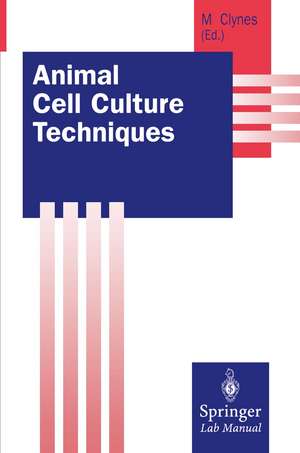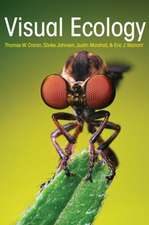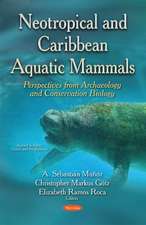Animal Cell Culture Techniques: Springer Lab Manuals
Editat de Martin Clynesen Limba Engleză Paperback – 16 iun 1998
Din seria Springer Lab Manuals
-
 Preț: 385.84 lei
Preț: 385.84 lei -
 Preț: 362.59 lei
Preț: 362.59 lei - 18%
 Preț: 973.69 lei
Preț: 973.69 lei - 15%
 Preț: 695.85 lei
Preț: 695.85 lei - 18%
 Preț: 997.40 lei
Preț: 997.40 lei -
 Preț: 385.84 lei
Preț: 385.84 lei -
 Preț: 382.18 lei
Preț: 382.18 lei - 24%
 Preț: 1045.08 lei
Preț: 1045.08 lei - 15%
 Preț: 641.20 lei
Preț: 641.20 lei - 18%
 Preț: 939.33 lei
Preț: 939.33 lei -
 Preț: 381.43 lei
Preț: 381.43 lei - 15%
 Preț: 637.59 lei
Preț: 637.59 lei - 15%
 Preț: 639.25 lei
Preț: 639.25 lei -
 Preț: 376.68 lei
Preț: 376.68 lei - 18%
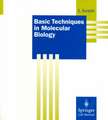 Preț: 1822.40 lei
Preț: 1822.40 lei - 18%
 Preț: 953.82 lei
Preț: 953.82 lei - 15%
 Preț: 645.14 lei
Preț: 645.14 lei - 15%
 Preț: 689.93 lei
Preț: 689.93 lei - 23%
 Preț: 821.58 lei
Preț: 821.58 lei - 19%
 Preț: 588.70 lei
Preț: 588.70 lei - 5%
 Preț: 727.44 lei
Preț: 727.44 lei - 18%
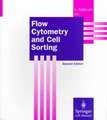 Preț: 1225.31 lei
Preț: 1225.31 lei - 15%
 Preț: 657.39 lei
Preț: 657.39 lei - 18%
 Preț: 949.73 lei
Preț: 949.73 lei -
 Preț: 386.99 lei
Preț: 386.99 lei - 15%
 Preț: 657.25 lei
Preț: 657.25 lei - 19%
 Preț: 555.62 lei
Preț: 555.62 lei -
 Preț: 380.63 lei
Preț: 380.63 lei - 18%
 Preț: 1226.11 lei
Preț: 1226.11 lei - 15%
 Preț: 649.22 lei
Preț: 649.22 lei - 15%
 Preț: 632.55 lei
Preț: 632.55 lei - 19%
 Preț: 584.76 lei
Preț: 584.76 lei - 15%
 Preț: 639.41 lei
Preț: 639.41 lei - 15%
 Preț: 644.82 lei
Preț: 644.82 lei -
 Preț: 390.25 lei
Preț: 390.25 lei - 18%
 Preț: 781.31 lei
Preț: 781.31 lei - 15%
 Preț: 644.63 lei
Preț: 644.63 lei -
 Preț: 382.36 lei
Preț: 382.36 lei -
 Preț: 363.12 lei
Preț: 363.12 lei - 18%
 Preț: 961.23 lei
Preț: 961.23 lei -
 Preț: 416.29 lei
Preț: 416.29 lei - 18%
 Preț: 783.35 lei
Preț: 783.35 lei - 18%
 Preț: 791.88 lei
Preț: 791.88 lei - 15%
 Preț: 675.22 lei
Preț: 675.22 lei - 23%
 Preț: 1311.54 lei
Preț: 1311.54 lei -
 Preț: 381.43 lei
Preț: 381.43 lei
Preț: 916.57 lei
Preț vechi: 1117.77 lei
-18% Nou
Puncte Express: 1375
Preț estimativ în valută:
175.39€ • 183.49$ • 145.69£
175.39€ • 183.49$ • 145.69£
Carte tipărită la comandă
Livrare economică 02-16 aprilie
Preluare comenzi: 021 569.72.76
Specificații
ISBN-13: 9783540630081
ISBN-10: 3540630082
Pagini: 636
Ilustrații: XIII, 618 p. 34 illus.
Dimensiuni: 155 x 235 x 33 mm
Greutate: 1.18 kg
Ediția:Softcover reprint of the original 1st ed. 1998
Editura: Springer Berlin, Heidelberg
Colecția Springer
Seria Springer Lab Manuals
Locul publicării:Berlin, Heidelberg, Germany
ISBN-10: 3540630082
Pagini: 636
Ilustrații: XIII, 618 p. 34 illus.
Dimensiuni: 155 x 235 x 33 mm
Greutate: 1.18 kg
Ediția:Softcover reprint of the original 1st ed. 1998
Editura: Springer Berlin, Heidelberg
Colecția Springer
Seria Springer Lab Manuals
Locul publicării:Berlin, Heidelberg, Germany
Public țintă
ResearchCuprins
I General Methods.- 1 Cloning Animal Cells.- 2 Cell Culture and Diagnostic Virology.- 3 Screening for Mycoplasma Contamination in Animal Cell Cultures.- 4 Serum-Free Media.- 5 Screening Culture Media and Sera for Endotoxin Testing.- 6 Generation of Monoclonal Antibodies and Characterization of Novel Antibodies by Western Blotting and Immunocytochemistry.- 7 The Generation of Long-Term Human Antibody-Producing Cell Lines Using the Epstein-Barr Virus.- 8 Primary Culture.- II Cell proliferation and Death.- 9 Baculoviral Expression and Partial Purification of Cyclin/CDK Complexes.- 10 Methods for Studying Phosphoinositide Metabolism in Cultured Cells.- 11 Analysis of Cell Cycle and Cell Death Mechanisms.- III In Vitro Models for Cell Differentiation.- 12 Assessing Release of Secretory Products from Individual Cells.- 13 The Granulocyte/Macrophage Colony-Forming Unit Assay.- 14 Investigations into Cell Differentiation Using Cells in Culture.- 15 Cell Culture Models for Mononuclear Phagocytes.- 16 The Human Leukemia Cell Line HL-60 as a Cell Culture Model To Study Neutrophil Functions and Inflammatory Cell Responses.- 17 Cell Culture Models for Polarized Epithelial Monolayers.- 18 Ion Channels and Cell Signaling in Cell Cultures.- 19 Isolation, Cultivation and Differentiation of Lung Type II Epithelial Cells.- 20 Culture Systems for Hepatocytes for Use in Toxicology and Differentiation Studies.- IV In Vitro Models for Toxicology and Pharmacology.- 21 Cellular Models for In Vitro Toxicity Testing.- 22 Miniaturized In Vitro Methods in Toxicity Testing.- 23 Investigation of Anti-tumor Drug Accumulation and Efflux in Cell Culture.- 24 Current Status of Genetically Engineered In Vitro Systems for Biotransformation.- V Industrial Application of Animal Cell Culture.- 25 Scale-Up of Animal Cell Cultures.- 26 Purification of Monoclonal Antibodies Produced by Animal Cells in Culture.- 27 Biosafety Assessment of Cultured Animal Cells Used for Biopharmaceutical Production.- 28 Cytokine Cell Culture Assays.- VI Genetic Manipulation and Analysis of Human and Animal Cells in Culture.- 29 Antisense Methods in Cell Culture.- 30 Transfection with Ribozymes to Investigate the Role of Specific Gene Expression.- 31 Methods for Studying the Transcription and DNase I Hypersensitive Sites of Genes in Cells in Culture.- 32 Analysis of Specific and Differentially Expressed mRNAs in Cell Culture.- 33 Human Gene Therapy: Review and Outlook.
Textul de pe ultima copertă
Cell culture techniques allow a variety of molecular and cell biological questions to be addressed, offering physiological conditions whilst avoiding the use of laboratory animals. In addition to basic techniques, a wide range of specialised practical protocols covering the following areas are included: cell proliferation and death, in-vitro models for cell differentiation, in-vitro models for toxicology and pharmacology, industrial application of animal cell culture, genetic manipulation and analysis of human and animal cells in culture.
Caracteristici
Clearly structured protocols for direct use in the laboratory Step-by step instructions with full practical details and background information Several of the reliable well-tested protocols are contributed by authors from the renowned Irish National Cell and Tissue Culture Centre
